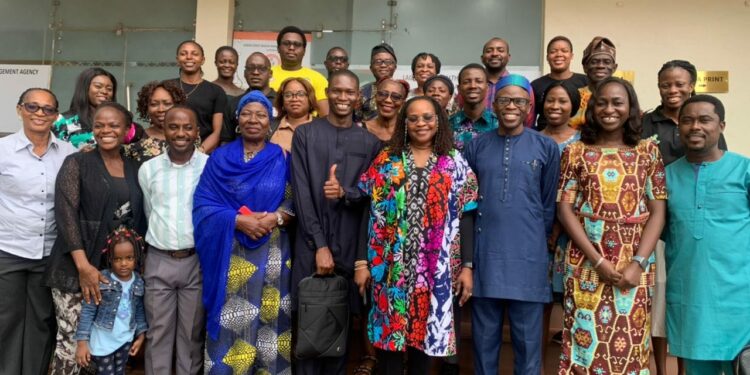The Lagos State Health Management Agency (LASHMA), has revealed that the Agency has received the sum of N1, 225, 405, 297, since inception of the Basic Health Care Provision Fund (BHCPF).
The permanent secretary, LASHMA, Emmanuel Zamba, who disclosed this at the Joint Learning Agenda (JLA) Stakeholder Engagement for the baseline assessment of the state’s alignment with the NHIA Act 2022 meeting, in Lagos state, added that the Agency is committed to ensuring that all residents in the state, have access to quality healthcare services, without financial burden.
She said the Agency got 100 per cent of the BHCPF last year, adding that, the Agency has gotten about 50 per cent of the allocated fund from the federal government in the beginning of this year, with the hope that the rest of the fund will be disbursed as soon as possible.
Recall that the governor of Lagos state, Mr. Babajide Sanwo-Olu approved one per cent of the State’s Consolidated Revenue Fund (CRF) as an equity fund to pay for residents who cannot afford to pay health insurance for themselves in order to ensure that Lagos state residents, including its vulnerable population, have access to the state health scheme.
“The equity fund is now in the first line charge in Lagos state. The first-line charge, means, the fund will be disbursed on a monthly basis. The budget would have been dissected into the 12 calendar months, so that it can be released every month. We have had conversations with the Ministry of Economic Budget and Planning (MEBP), so that it can be operationalized,” Zamba stated.
To ensure that the Lagos State Health Insurance Scheme aligns with the National Health Insurance Authority Act, (NHIA) Act, the PS said activities are ongoing to reverse the Lagos State Health scheme law, so that it will be more intune with the national, while incorporating some policies that will work for the state.
“Their are limitations as to what the state health insurance can do. Part of the grey areas was where does the federal government legislation starts and end, and where those the states legislation starts? Certainly, we cannot be running a state health insurance, without we the state regulating it. Also, the National law states that social plan is mandatory for everyone, but the existing state law does not say so. These are things that we have identified. We have done a draft to repeal the existing law in the state, to ensure that it is in tune with the National law,” she further explained.
Meanwhile, a board member of LASHMA, barrister Ayo Adebusoye, said the baseline assessment of the state alignment with the NHIA Act 2022, is crucial as it will help ascertain if states are in line with the provisions of the NHIA Act 2022.
In the same vein, the co-coordinator, Joint Learning Agenda for Universal Health Coverage, (JLA4UHC), Olayide Akanni, said, the Joint Learning Programme is a Civil Society led initiative, that was kicked started through support from global donors. The whole idea was to build the capacity of CSOs across 20 countries in Africa, to be able to lead advocacy initiatives around Universal Health Coverage (UHC), Akanni alluded.
In Nigeria, the co-coordinator said, she and her partner came up with advocacy around health financing. “We have trained CSOs to understand the role of insurance in health financing. We want to create awareness about health insurance, because from the feedback that we got from CSOs, citizens are reluctant to take up health insurance, due to myths and misconceptions. We needed to find a way to correct these myths and misconceptions.”
Akanni said JLA4UHC is presently working in two states to assess them in terms of how compliance they are with the provisions of the NHIA Act, while revealing that, “We are currently working in Lagos and Kano states. We are assessing how compliance the states are with the provisions of the act; what are the gaps, interventions and how can CSOs support the activities that are happening at the states level. For us to get these information, we have been able to come up with a set of tools, to be able to assess how effective a state has been in terms of the rollout of its health insurance scheme.”



